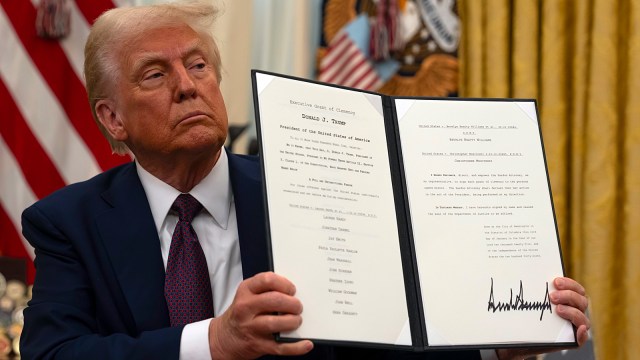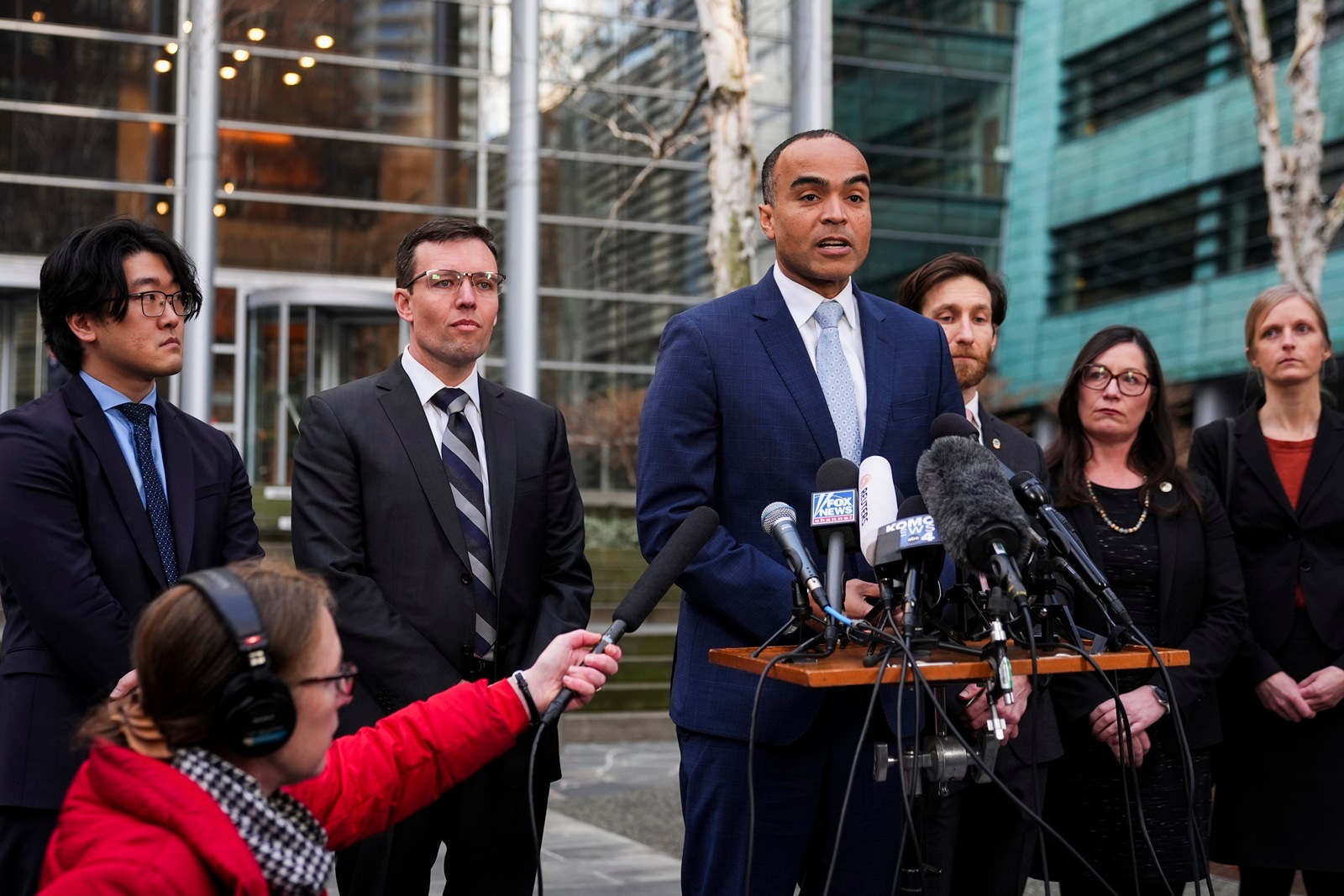Stay updated with the latest - Click here to follow us on Instagram
US judge blocks Donald Trump’s bid to end birthright citizenship
Trump Birthright Citizenship Order Update: The order, signed by Trump on his first day back in office, directs federal agencies to deny citizenship to children born in the US if neither parent is a citizen or legal permanent resident.
 President Donald Trump holds up a signed executive order. (Photo: AP)
President Donald Trump holds up a signed executive order. (Photo: AP)A federal judge in Seattle has temporarily blocked an executive order by President Donald Trump that sought to curtail birthright citizenship in the United States. The ruling came on Thursday after US District Judge John Coughenour granted a temporary restraining order, halting enforcement of the policy for 14 days while the court considers a preliminary injunction.
The order, signed by Trump on his first day back in office, directs federal agencies to deny citizenship to children born in the US if neither parent is a citizen or legal permanent resident. The ruling marks the first major legal setback for Trump’s renewed effort to redefine American citizenship laws.
‘Blatantly unconstitutional,’ Judge says
Judge Coughenour, appointed by Republican former President Ronald Reagan, did not mince words during the hearing, describing the executive order as “blatantly unconstitutional.” Responding to the Justice Department’s defence of the directive, the judge expressed disbelief that any legal professional could consider the order constitutionally sound.
“I am having trouble understanding how a member of the bar could state unequivocally that this order is constitutional,” Coughenour told Brett Shumate, the Justice Department attorney defending the administration’s position. “It just boggles my mind.”
The ruling came after four Democratic-led states — Washington, Arizona, Illinois, and Oregon — filed suit, arguing that the order violated the 14th Amendment’s citizenship clause, which guarantees citizenship to anyone born on US soil, regardless of their parents’ immigration status.
 Washington Attorney General Nick Brown speaks during a press conference after a federal judge temporarily blocked Donald Trump’s executive order aimed at ending birthright citizenship. (Photo: AP)
Washington Attorney General Nick Brown speaks during a press conference after a federal judge temporarily blocked Donald Trump’s executive order aimed at ending birthright citizenship. (Photo: AP)
Legal battle over the 14th amendment
The debate over birthright citizenship centres on the 14th Amendment, which was adopted in 1868 following the Civil War and guarantees citizenship to all individuals born in the United States. The amendment was a response to the Dred Scott decision of 1857, which denied citizenship to enslaved Black people and their descendants. Since then, the citizenship clause has been interpreted to include all children born in the US, even to non-citizen parents.
The Supreme Court cemented this interpretation 127 years ago, ruling in United States v. Wong Kim Ark that children born in the US to non-citizen parents are entitled to citizenship. Trump’s executive order seeks to overturn this long-established precedent, a move that legal scholars say is likely to face significant judicial scrutiny.
During the hearing, Washington Assistant Attorney General Lane Polozola emphasized the immediate impact of the order, warning that under Trump’s policy, “babies being born today don’t count as US citizens.” Polozola and other state officials argued that the order would strip basic rights from more than 150,000 newborns annually, leaving them without Social Security numbers, government benefits, or legal employment opportunities as they grow older.
Trump’s bid to end birthright citizenship
Trump has long sought to end birthright citizenship, a policy that has been a cornerstone of his immigration agenda since his first presidential campaign in 2016. During his previous term, Trump floated the idea of ending birthright citizenship through executive action, but the proposal was never formalised into policy. His latest executive order represents a renewed and more aggressive attempt to redefine the parameters of American citizenship.
The administration argues that birthright citizenship incentivizes illegal immigration and places a strain on public resources. In defending the order, the Justice Department described it as an “integral part” of Trump’s efforts to reform the US immigration system and address the crisis at the southern border. Shumate, the Justice Department lawyer, called the ruling to block the order “wildly inappropriate” and maintained that the executive order was a necessary measure to fix what the administration views as a broken immigration system.
Republicans push legislative efforts to limit citizenship
While Trump’s executive order is tied up in court, his allies in Congress are pursuing parallel efforts to limit birthright citizenship. A group of 36 Republican lawmakers in the House of Representatives introduced legislation that would restrict citizenship to children of US citizens or lawful permanent residents, effectively codifying Trump’s policy into law.
The legislative proposal has drawn support from conservative lawmakers who argue that birthright citizenship encourages illegal immigration and contributes to what they call “anchor baby” practices, where non-citizens have children in the US to secure citizenship benefits for the entire family.



- 01
- 02
- 03
- 04
- 05




























